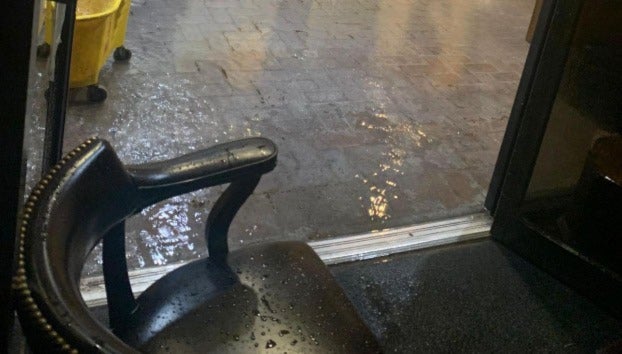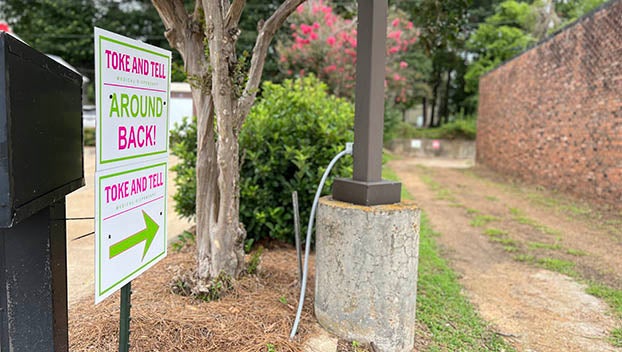City, county differ on budget approaches
Published 12:03 am Sunday, September 10, 2017
by DAVID HAMILTON & CAIN MADDEN
NATCHEZ — Where do city and county taxpayers’ dollars go when the bill goes in the mail?
Of the approximately $33.6 million in revenues the city projects to accrue by the end of this fiscal year, approximately $5.3 million is obtained through ad valorem taxes.
These taxes are levied on residents’ property (including house, automobile and rental real property), utilities and business fixtures.
For the coming year, the city is currently mulling over a millage increase of up to 4 mills. One mill would add $10 in tax to a house valued at $100,000.
During the 2016-17 fiscal year, the Adams County Board of Supervisors operated under an approximately $26-million revenue budget, approximately 58 percent or approximately $15.2 million of it coming from ad valorem taxes.
For the upcoming fiscal year, the county’s proposed budget will increase by approximately $1.7 million to approximately $27.7 million in revenues. Of that, approximately 57 percent or $15.8 million is obtained through ad valorem taxes.
The county is not proposing raises taxes. The increase in revenues are due to additional property appearing on the tax rolls — including some in Beau Pre, Greenfield Road and a multi-million dollar house. Assessed values also increased in the community to bring Adams County in compliance with Mississippi Department of Revenue standards.
The state recommends all properties be assessed at 80 percent of their true value, and some Adams County properties had not been assessed at that percentage.
City budget
Natchez Mayor Darryl Grennell believes the city’s millage increase is necessary to provide services for Natchez residents.
“In order to get services, you’ve got to pay for services,” Grennell said.
One of the services provided by the city — and the focal point of the possible millage increase — is public safety.
Between the police and fire departments and including money spent on the consolidated emergency dispatch system, the city projects to spend approximately $6 million (more than one-sixth of the city’s total projected expenditures) by the close of this fiscal year.
Out of all the services provided by the city, Grennell said that public safety is imperative.
“If a person’s out there and they’re having trouble, their lives are in danger, if they’re in an accident and they need help, they need officers, they need firefighters to come extinguish a fire — you know what? They don’t think about any taxes at that point,” Grennell said.
“They want their lives protected. They want their families’ lives protected. They want their property saved.”
For these reasons, Grennell and the board of aldermen have placed heavy emphasis on the police and fire departments during budget season.
But tax dollars serve plenty of other means.
The Natchez Public Works Department, whose members were called “first responders” by Grennell and Ward 4 Alderwoman Felicia Irving in certain instances, is projected to expend approximately $2.7 million this year.
The city also invests heavily (relative to the county) in recreation. Between the Duncan Park Golf Course and tennis courts, city parks and other recreational facilities, the city is projected to spend approximately $900,000 on recreation this fiscal year, a figure that is expected to remain mostly consistent heading into the next fiscal period.
Tax money also goes toward a number of other city needs.
For example, approximately $500,000 of ad valorem tax revenue will go into the city’s pension trust fund, while approximately $580,000 of tax revenue will contribute to paying off certain bonds.
But out of all the services, city leaders have said the millage increase largely boils down to the need to issue pay raises to police officers and firefighters.
Ward 6 Alderman Dan Dillard said he thinks the city must ensure the public the additional funds gained from a millage increase will be used “for those services and only those services.”
Ward 1 Alderwoman Joyce Arceneaux-Mathis said the city would gain an additional $117,000 in revenue for each mill raised.
The aldermen still have work to do before Friday, when they plan to approve a final 2017-2018 budget during a 5 p.m. meeting in the City Council Chambers building.
Prior to that meeting, the aldermen are scheduled to convene at 4 p.m. Tuesday at City Hall to hash out projections for next year and come up with a more refined budget plan.
County budget
The board of supervisors will have its public hearing at 9 a.m. Friday in its board room at 314 State St. The county is not proposing a millage increase. Overall tax millage will decrease due to the school district’s millage rate going down.
The county increased millage by 2.14 mills last year to accommodate the school district’s request. However, this year due to increased assessments, the school district’s millage rate is expected to drop by 1.42 mills.
The largest county budgets are the Adams County Sheriff’s Office and the county roads and bridges departments.
The sheriff’s office budget decreased from approximately $2.7 million in the current fiscal year to approximately $2.6 million this upcoming year. The big decrease is dispatchers moving from the sheriff’s office budget to the E911 budget.
The E911 budget, now at approximately $1.3 million, is picking up $558,297 in dispatch personnel between the city and county due to consolidation.
The road budget is $1.8 million and the bridge/culvert budget is approximately $1.3 million.
On recreation, the county is projecting to spend approximately $1 million this year — with approximately $334,000 ongoing.
Board of Supervisors President Mike Lazarus said the county is paying $100,000 for the YMCA to be here. The county also projects to have to spend $700,000 on the pool, for which the city also agreed to cover half the costs.
The county does not collect revenues from recreation, Lazarus said. The city collects some from golf and tennis.
Lazarus said he hopes to keep recreation spending up in the coming years to fund the comprehensive recreation plan, including the new baseball and softball fields.
Lazarus said every year supervisors try to save taxpayers’ money to keep the millage rate from going up.
“We have cut and cut as much as we can,” Lazarus said. “The only department that has grown through the years is the sheriff’s office.”
Lazarus said people talk about population dropping, and he said that is reflected in many of the departments. For example, Lazarus said 20 years ago 80 employees were in the road department. Now only 35 employees maintain the same 480 miles of road.
“There is not a lot of fat in Adams County.”
Lazarus said the county has $60 million worth of buildings, many of them aging, so maintenance costs can add up. Lazarus said the same is true of many aging vehicles.
“It costs a lot to run the county,” Lazarus said. “But since (County Administrator) Joe Murray has been there (since 2011), we have worked on it and worked on it.
“Joe has cut out more than $1 million out of the budget.”
That said, Lazarus said room for improvement always exists. Over the next year, Lazarus said the hiring of a county nurse practitioner would continue saving money.
Compared to contracting the nurse practitioner service for the sheriff’s office prison and the juvenile dentation center, Lazarus said the county is saving $25,000 to $30,000 a year. The county also saved more than $300,000 in health insurance costs last year, and Lazarus said having a nurse practitioner on staff for a full year could keep that number decreasing.
Employees and dependents are able to see the nurse practitioner instead of going to the emergency room or after hours clinics, which cuts down on charges being billed to the county’s self-funded insurance plan.
Lazarus said the county is also looking to handle some of its Emergency Watershed Protection Program projects in house through the road department should the program not require the projects to be bid out.
“We have to pay 25 percent on these projects,” Lazarus said. “I think we can do it cheaper than a lot of contractors if we can do it in house.”
The county also refinances its bonds, some of which had been as high as 6- to 7-percent in interest rates.
“We are looking at one now where we will save only $25,000,” Lazarus said. “But that’s $25,000 every year.”
Lazarus said he does not expect the supervisors to stop looking into ways to save taxpayers’ money in the coming year.
“Who is to say in the next month we won’t come up with something else to save money?” Lazarus said. “It usually comes out of necessity when something is getting too outrageous to pay, and we look at other ways to provide the service.”
Sheriff Travis Patten said the community is getting its money’s worth from the services provided by the sheriff’s office.
“Everyone here has more than one job responsibility,” Patten said. “People are cross trained here. No one person including myself here is not a multi-tasker, period.”
Patten said his grant team has also been working hard, which has provided the department the three crisis intervention team deputies. The team’s salaries are 80-percent grant funded, and Patten said they are an example of how the sheriff’s office is making a difference in the community.
“Just a couple days ago, we had a veteran who wanted to commit suicide,” Patten said. “He had the gun ready and claimed he was ready to kill anyone who came through the door.”
Patten said the CIT officers are experienced and were able to diffuse the situation and get the individual treatment at a local hospital.
“We were able to save a life,” Patten said. “When it comes to a budget, if you can save one life, the entire budget is worth it to me. You can’t put a value on a human life.
“You can’t put a value on the training these men and women have that is put to the test every day.”
The budget also enables the sheriff’s office to do more community policing, which Patten said would make a difference in the long run. Patten said rarely does a community event happen in Natchez in which a sheriff’s office deputy is not present while on or off duty.
“Building relationships with people, that is invaluable,” he said. “You shouldn’t just see the officer when he or she shows up at your house because of a call.
“It is important to us to build relationships up so when we show up at a stressful time, it can really help deescalate those situations.”
Patten said the sheriff’s office has been vigilant in looking for savings, but agreed with Lazarus in that room for improvement always exists.
“We just have to find it,” Patten said. “Our eyes and ears are definitely open for it.”





